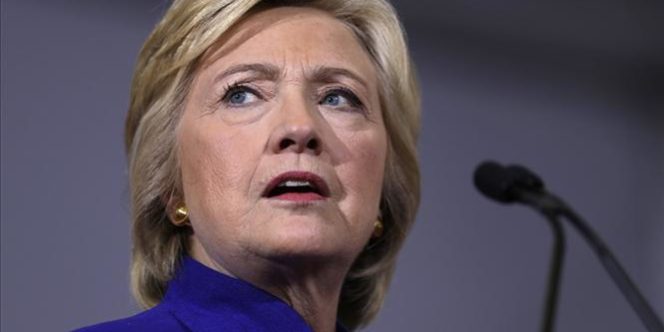Newly released emails appear to show a State Department official coordinating with Hillary Clinton’s presidential campaign before her use of a private email to conduct government business was revealed.
Emails from campaign chairman John Podesta show that the state official provided Clinton aides with the agency’s official response to a New York Times reporter in advance of the paper’s March 2015 report that Clinton had used a private email account to conduct business while serving as secretary of state. WikiLeaks released the hacked emails Wednesday in part of a massive trove of emails disclosed by the whistleblowing website. The site has released new Podesta emails on a daily basis since October. WikiLeaks has indicated it intends to leak emails stolen from Podesta’s account every day through the election.
In a March 1, 2015 email, State Department press aide Lauren Hickey told Clinton’s spokesman Nick Merrill and two other advisers that then-State Department spokeswoman Jen Psaki had “just cleared” a reply to the Times. Hickey provided the agency’s response to the Clinton aides and also appeared to agree to a change requested by the campaign, saying: “Yes on your point re records – done below.” It is not clear what specific change was requested and made.
State Department spokesman John Kirby said Wednesday that the department would not comment on alleged leaked documents. But he said the department’s effort to “provide accurate information to the media” about Clinton’s tenure at the agency has “at times required communicating with her representatives to ensure accuracy.” The Clinton campaign has repeatedly warned that WikiLeaks has exploited emails stolen by hackers who may be working for the Russian government.
WikiLeaks founder Julian Assange denied those claims in an interview with Russia Today on Wednesday.
“The Clinton camp has been able to project a neo-McCarthyist hysteria that Russia is responsible for everything,” Assange said. “Hillary Clinton has stated multiple times, falsely, that 17 US intelligence agencies had assessed that Russia was the source of our publications. That’s false – we can say that the Russian government is not the source.”
The Podesta emails follow a string of notable illicit caches released during the 2016 election campaign, including thousands of messages stolen from the Democratic National Committee and former Secretary of State Colin Powell. The FBI has opened a criminal investigation into the DNC thefts, but U.S. intelligence agencies have blamed the Russian government. In a hacked email chain from March 17, 2015, Clinton’s campaign advisers discussed how to respond to a request by a Times reporter for comment on an upcoming story about how top State Department aides used private email accounts to communicate with Clinton.
Clinton aide Philippe Reines wrote: “There’s a lot to respond to here, but first and foremost the premise is wrong. There is nothing wrong with anyone having personal email addresses or her emailing someone’s private account or vice versa. Maybe she was wishing (longtime aide) Jake (Sullivan) a happy birthday. Or I was sending her a note about her mom. … We’re allowed to have personal lives.”
Campaign spokeswoman Jennifer Palmieri wrote: “Strikes me as a big problem that the NYT is having selected emails leaked to them and I think we should do a call to discuss the proper way to handle.” The email exchange occurred about a month before Clinton officially launched her presidential bid in a video released in April 2015.
In an August 2015 email exchange, Clinton aide Huma Abedin points out that Clinton wasn’t prepared for all of the questions surrounding the use of her private email and asks for a longer list of questions and answers “so at least it’s out there and maybe she won’t have to do it verbally again?”
Separately, a Justice Department official with close ties to Podesta sent him a “heads up” last year to warn might question witnesses about the presidential candidate’s private emails.
Assistant Attorney General Peter Kadzik, the official now in charge of informing Congress about the revived Clinton email probe, gave a personal status update to the Clinton campaign in the email sent May 19, 2015.
The message from his Gmail account to Podesta was titled: “Heads up.”
“There is a [House Judiciary Committee] oversight hearing today where the head of our Civil Division will testify,” Kadzik wrote. “Likely to get questions on State Department emails.”
The warning came just two weeks after Kadzik’s son had written to Podesta asking for a job on Clinton’s presidential campaign. Clinton spokesman Glen Caplin told Fox News that Kadzik’s son did not ever work for the campaign.










